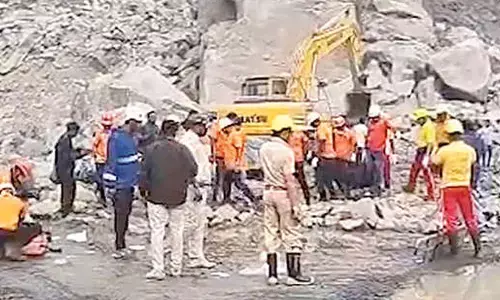Be patient for the storm to pass
 Be patient for the storm to pass
Be patient for the storm to passWhile it’s difficult to remain sane in these disturbing times, one could find security through proper asset allocation and realigning the portfolio to the changing hues of the market
As the lockdown restrictions are eased, our economic activity is slowly limping back to normalcy. The path is fragile and long way as the possible infection rate of the pandemic would shoot up.
We've to maneuver around the virus epidemic and still try get back to routine. We would find a new normal life. While we try accommodating many changes to our lifestyle and way of working, etc., what changes one has to do with the investing?
Ever since the pandemic news reached our shores, the phases of lockdown began, the markets have reacted to waves of news in various ways.
The reactions have been extreme similar to us, the collective conscious of all investors. True, that it's difficult to remain balanced or unaffected during these tough times and also for an unprecedented event.
Human minds get easily accustomed to routine, we find comfort in order and repetition. Whenever there's even a little disturbance to that, we feel disharmony in our lives and compound it further with our extrapolations.
We also ascribe some or other reason to each of the events that happen or affect us. For instance, if the market goes up or down, we try find the reason and come up with a conclusion. We find consolation in coming up answers with cause-and-effect to all events.
As Nasim Taleb described about the narrative fallacy, it's our natural impulse to assign reasons for everything that happens, even when the evidence is flimsy.
While finding connection to all events around us gives relief to our minds, it's difficult to connect in dynamic and complex situations of evolving world.
In modelling or constrained environments, this is easily observed and could even be controlled, but real-world probabilities are indeterminate and inordinate. These can't be always be predicted or ordered.
So, when we look at the current situation with past contexts of financial or economic events, we might not end up with correct outcome.
The present circumstances demand an unprecedented response and that's what the central bankers, governments have embarked on across the world.
We've no clue how long the virus could create havoc or how long would it take to go back to pre-pandemic days?
Would the relaxed lockdown norms or reopening up of the economy act detrimental to virus containment, would the projected infection rates or mortality rates remain same?
By following the social distancing norms, could we get back to work, if so then how would it impact the productivities? We still don't know what exactly the impact of the various measures would be despite numerous modelling outcomes throw out.
This is because when employ our knowledge of the past into decision making of the future, the pattern may not result into an older one.
But then history of investing shows that we've seen busts and booms in cycles of gloom and boom. What were we thinking when we witnessed the last market fall?
What did we learn in the past cycles for us to respond now or did we learn anything? Why didn't we use that knowledge this time around?
As the event passes and we come out of the crisis, we figure that we'd anticipated that there is an end of the tunnel. This is the hindsight bias we carry in our lives, always.
Still we couldn't act sane or be unaffected as the markets continuously fall further and to remain on the sidelines is very difficult in these testing times.
The urge to act or react to the market vagaries is imminent. That's why it's said that the returns from the markets don't depend upon how they respond to the news, but how we react to the news of market response.
While it's difficult to remain sane in these disturbing times, one could find security through proper asset allocation and realigning the portfolio to the changing hues of the market. And most importantly stay patiently for the storm to settle.
(The author is a co-founder of "Wealocity", a wealth management firm and could be reached at [email protected])














